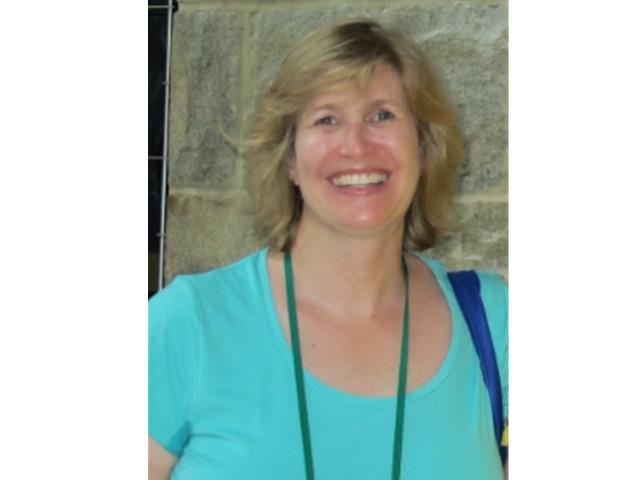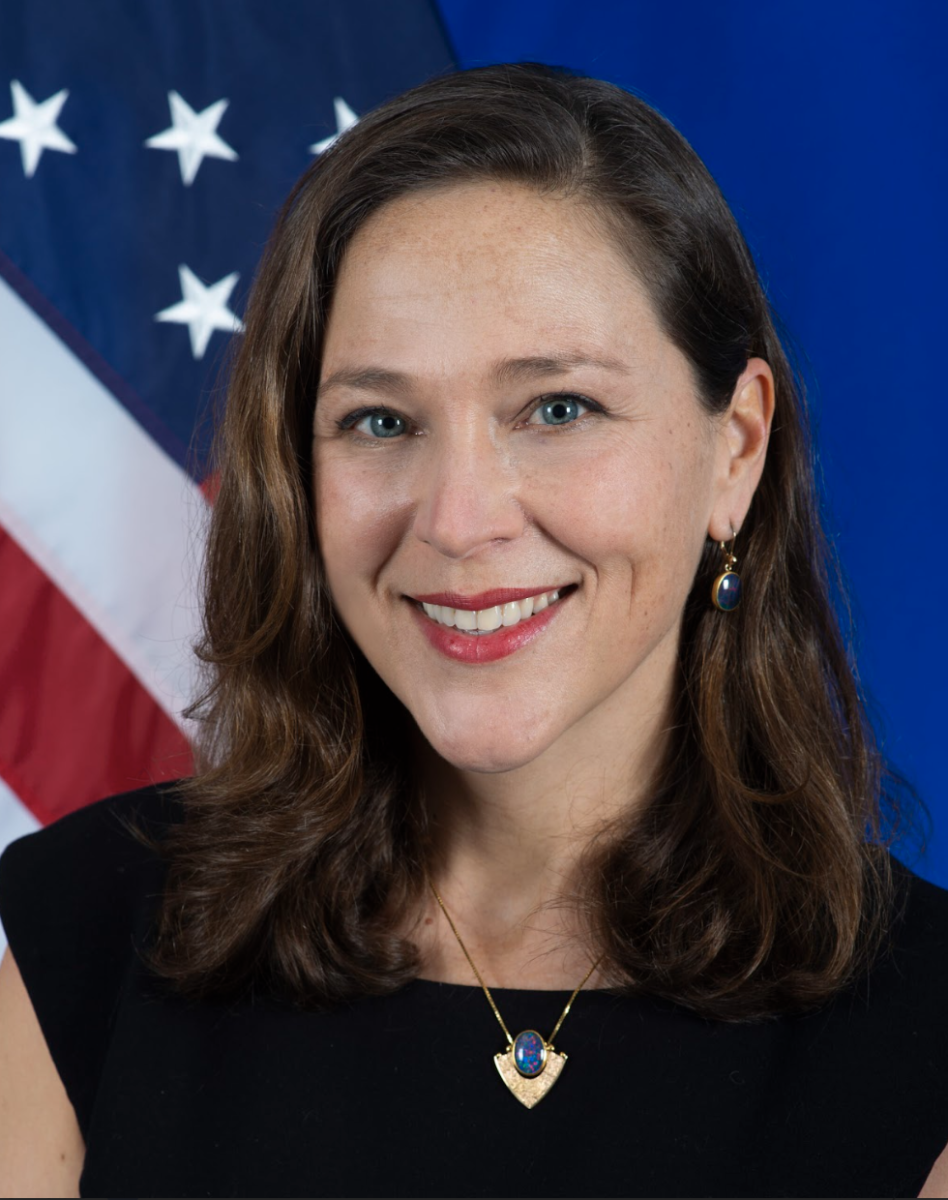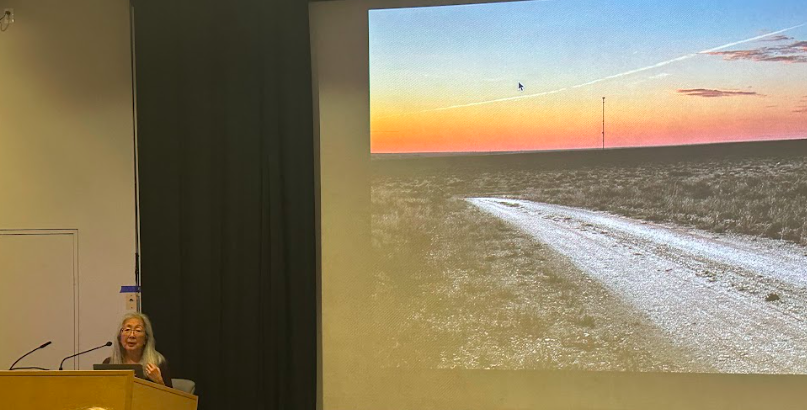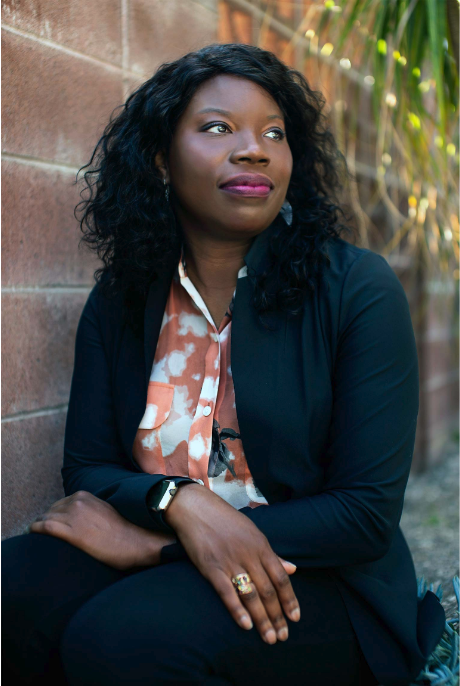Lynn Horton ’89 says that she was born to go to Wellesley College. Her mother attended Wellesley at a time when women were not typically offered higher levels of education; her older sister then followed suit.
“[There] never even was a question in my mind that I should go to Wellesley,” Horton said.
Horton was born in Madison, Wisconsin and grew up there. She lived in a traditional, middle-income Midwestern town, and she and her siblings were always active. She swam from a young age, played soccer and later on began voice lessons and performance theatre. Horton’s mother was particularly encouraging toward her two daughters because she knew that she had missed out on a lot as a child, and she wanted to provide a wider range of experiences for her daughters.
Upon arriving at Wellesley, Horton hoped to major in a science-related field. However, she considered music, psychology, neuroscience, biology, and even history before ending up with a major in biochemistry and a minor in psychology. A sophomore level genetics class with a professor whose name she recalls as David Haines finally solidified her choice.
“I fell in love with it, I just thought it was the coolest thing ever,” Horton said.
During her senior year at Wellesley, Horton applied to three graduate school programs, but none of them worked out. Instead of jumping right back into school, she took a year off and worked in a lab, gaining important research skills.
“It was the best thing that I did,” she said of this break.
Horton continued to research graduate programs. Her boyfriend at the time, who was from Cleveland, recommended Case Western Reserve University. It had a smaller graduate program and it was located in a nice, affordable city. Horton believed that this was the right place for her.
After receiving her PhD in cell biology, Horton continued her postdoctoral research at Case Western Reserve. She began looking at cross slicing in a particular type of yeast. When, after two years, her research was unsuccessful, she switched labs. At her new lab, she began looking at protein translation in different types of yeast, which led back to some cancer research she had done in her undergraduate studies.
“You’ll never know where something you’ve done will take you 20 years later,” Horton said.
Horton then did almost a 180 degree shift in her work: she went from a researcher to a teacher. Although research remained one of her passions, Horton decided to explore a teaching career. At the time, most graduate schools did not have teaching programs. She had to encourage the school to create resources for post-doctoral students interested in teaching.
“It was very much like I had to go out and … make it happen for myself,” Horton said.
However, finding jobs in academia has been hard the past 20 or so years. After deciding to teach, Horton worked as a high school teacher in Cleveland and landed her first full-time position as an adjunct professor at Robert Morris University in Pittsburgh. She landed her current job at Winchester Thurston preparatory school in Pittsburgh through connections. The head of her current school had been a director at another school she at which she had taught.
“A part of it was knowing people, which I can’t ever over-emphasize enough,” Horton said.
Although Horton can only teach at private high schools because she does not have a teaching certificate, she prefers this arrangement because it gives her the freedom to teach whichever subjects her PhD qualifies her for. These subjects range from chemistry to psychology. A certificate, she says, would pigeon-hole her into teaching either chemistry or biology. Instead her attitude is, “Let me teach both.”
Currently, her biggest project is teaching a research program for high schoolers. The students are given four or five projects to begin with and, with the guidance of Horton and two other professors from the University of Pittsburgh, they can branch out into issues based on personal interests. Horton’s background in research helps her guide the students through their work and provides assistance in a field where failure is frequent.
“What I love the best about it is that we’re teaching them that failure is okay and that you learn from it,” Horton said.
Teaching takes up a lot of Horton’s time, but she still runs and coaches a soccer team, sings in several church choirs, acts and takes voice lessons. She finds that when she is unhappy it is because she is not engaged in activities.
“I’m constantly pushing myself forward and that makes me really happy,” Horton said.
Horton’s entire career has been about flexibility and freedom, and she could see herself retiring as a high school teacher. However, her plans are subject to change should another opportunity arise.“If some[other] kind of opportunity came up, I’d probably jump on that,” Horton said.
As she moves forward, she hopes to reconnect with friends and travel. Although she describes herself as a play-it-by-ear person, there is one thing she desires to remain constant: “I can’t imagine ever not teaching,” Horton said.
Photo Courtesy of Lynn Horton ’89






